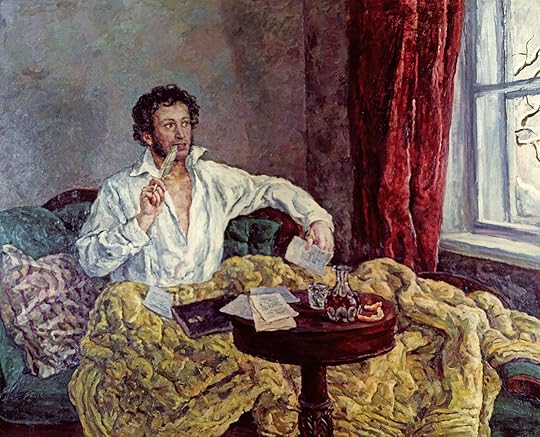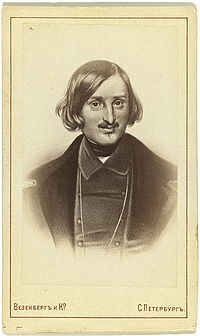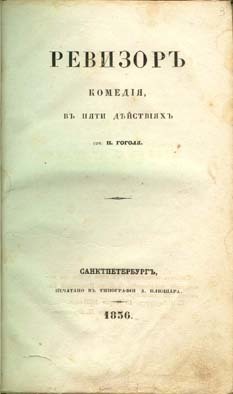Jane Marlow's Blog, page 5
January 20, 2018
EDITING FANTASIA
My publisher and I just finished the editing phase of my latest book, How Did I Get Here? It's due out in May.
Below is a sample of a typical page after the eagle-eyed editors have combed through it for the 3rd time. You can understand why my eyes are crossed from overload and my fingers are crossed that every blunder has been fixed.

Below is a sample of a typical page after the eagle-eyed editors have combed through it for the 3rd time. You can understand why my eyes are crossed from overload and my fingers are crossed that every blunder has been fixed.

Published on January 20, 2018 05:34
SLAVIC SLAPSTICK - Matryoshka
I hate Russian dolls.
They're so full of themselves!

They're so full of themselves!

Published on January 20, 2018 05:08
December 1, 2017
PART 2 OF THE STORY
Yippeee !
I’m ecstatic! My publisher gave me a thumbs-up on my next book. How Did I Get Here? is the follow-up novel to Who Is to Blame? Hmmm...my titles seem to have a penchant for asking questions, don’t they? (oh, no . . . another question!)
The novel will be released in May. I’ll be updating its status (including behind-the-scenes photos and anecdotes) on this blog as well as in my e-newsletter.
e-newsletter
The story will transport you to Russia's Crimean War (1853 – 1856). And you'll also catch up with your favorite characters from Who Is to Blame?
I’m ecstatic! My publisher gave me a thumbs-up on my next book. How Did I Get Here? is the follow-up novel to Who Is to Blame? Hmmm...my titles seem to have a penchant for asking questions, don’t they? (oh, no . . . another question!)
The novel will be released in May. I’ll be updating its status (including behind-the-scenes photos and anecdotes) on this blog as well as in my e-newsletter.
e-newsletter
The story will transport you to Russia's Crimean War (1853 – 1856). And you'll also catch up with your favorite characters from Who Is to Blame?
Published on December 01, 2017 13:42
November 26, 2017
PUSHKIN - A MAN OF HONOR
Alexander Pushkin (1799 – 1837) is standard against which Russian literature is evaluated. A man who cared deeply about his honor, he was no stranger to duels. As a member of the outlawed political group The Decembrists, he championed the cause of the peasants and was regarded as an enemy of the Tsarist regime. Was his fateful 29th duel a set up to get him out of the way once and for all?
“My dreams, my dreams! What has become of their sweetness? What indeed has become of my youth?” ― Eugene Onegin

“My dreams, my dreams! What has become of their sweetness? What indeed has become of my youth?” ― Eugene Onegin

Published on November 26, 2017 11:28
November 4, 2017
RUSSIAN WISDOM & WISECRACKS
"The longer & more carefully we look at a funny story, the sadder it becomes."
Nikolai Gogol
1809-1852

Nikolai Gogol
1809-1852

Published on November 04, 2017 12:34
October 16, 2017
CHUCKLES FROM RUSSIAN HISTORY
What fish did Vladimir Lenin hate?

SARDINES !
For more grins as well as insights into Russian history, visit my newsletter Petrovo Potpourri

SARDINES !
For more grins as well as insights into Russian history, visit my newsletter Petrovo Potpourri
Published on October 16, 2017 09:43
September 10, 2017
A 10-MINUTE GETAWAY
Join me 4 times a year for a quick visit to the land of the tsars. My e-newsletter Petrovo Potpourri isn't about me and it isn't about things you can buy. It's about insights you can gain.
Here's a tidbit from the latest issue:
____________________
Fiddler on the Roof had considerable influence on my selection of a backdrop for my first novel. Although Fiddler’s setting was 40 years later than the time period of Who Is to Blame, the two share many similarities—prejudice, suppression, rural culture, and the deep-rooted role of religion.
I'm not the only one with a soft spot for Fiddler on the Roof. The original Broadway production opened in 1965 and held the record for the longest-running Broadway musical for almost 10 years, until it was preempted by Grease.
In the Broadway performance, the original lead role of Tevye was played Zero Mostel, and he was definitely not happy when Chaim Topol was cast for the role in the 1971 movie. Topol went on to play Tevya over 2700 times on stage. In 1971, Leonard Nimoy played Tevye on stage, quite a different gig from his signature role as Mr. Spock!

Leonard Nimoy as Tevya
___________________
Take a look at the entire current issue of Petrovo Potpourri. You have my word that I won't share your contact information and you will never receive spam from me.
Here's a tidbit from the latest issue:
____________________
Fiddler on the Roof had considerable influence on my selection of a backdrop for my first novel. Although Fiddler’s setting was 40 years later than the time period of Who Is to Blame, the two share many similarities—prejudice, suppression, rural culture, and the deep-rooted role of religion.
I'm not the only one with a soft spot for Fiddler on the Roof. The original Broadway production opened in 1965 and held the record for the longest-running Broadway musical for almost 10 years, until it was preempted by Grease.
In the Broadway performance, the original lead role of Tevye was played Zero Mostel, and he was definitely not happy when Chaim Topol was cast for the role in the 1971 movie. Topol went on to play Tevya over 2700 times on stage. In 1971, Leonard Nimoy played Tevye on stage, quite a different gig from his signature role as Mr. Spock!

Leonard Nimoy as Tevya
___________________
Take a look at the entire current issue of Petrovo Potpourri. You have my word that I won't share your contact information and you will never receive spam from me.
Published on September 10, 2017 03:58
August 31, 2017
ENJOY READING BOOKS? ENJOY A LONGER LIFE
A 2016 Yale University study found that people who read books lived about 2 years longer than those who don’t. Although the study found a correlation between reading and increased lifespan, the researchers did not identify the cause.
However, according to Josie Billington at the University of Liverpool, “Reading not only helps to introduce or reconnect readers to wider life systems and more broadly shared meanings. It can also remind people of activities or occupations they once pursued, or knowledge and skills they still possess, helping to restore their sense of having a place and purpose in the world.”
Moral of the story:
Cozying up with a book-a-day
keeps the Grim Reaper away

However, according to Josie Billington at the University of Liverpool, “Reading not only helps to introduce or reconnect readers to wider life systems and more broadly shared meanings. It can also remind people of activities or occupations they once pursued, or knowledge and skills they still possess, helping to restore their sense of having a place and purpose in the world.”
Moral of the story:
Cozying up with a book-a-day
keeps the Grim Reaper away

Published on August 31, 2017 17:46
August 15, 2017
DIG A LITTLE DEEPER
Did Who to Blame make you want to dig a little deeper into the the lives of Russian peasants? I can't recommend a better follow-up source than Peasant Russia.
Although Dr. Christine Worobec is among the world’s leading historians of tsarist Russia, she penned this non-fiction book in a style the layperson can not only understand but will also enjoy. She laid a foundation using both primary and secondary sources, then she underscored her point by inserting a concise, factual vignette.
If you want an incisive view of Russia’s peasant society during the latter 1800s but lack the desire to slog through textbooks, this 250-page paperback is for you.

Although Dr. Christine Worobec is among the world’s leading historians of tsarist Russia, she penned this non-fiction book in a style the layperson can not only understand but will also enjoy. She laid a foundation using both primary and secondary sources, then she underscored her point by inserting a concise, factual vignette.
If you want an incisive view of Russia’s peasant society during the latter 1800s but lack the desire to slog through textbooks, this 250-page paperback is for you.

Published on August 15, 2017 11:17
July 23, 2017
Russian Wisdom & Wisecracks
"Whatever you may say, the body depends on the soul."
Nikolai Gogol
novelist, short story writer, playwright (1809 – 1852)
Nikolai Vasilievich Gogol is probably best known for his short story “The Overcoat” and his political satire Dead Souls. Like many creative geniuses, Gogol had a reputation for eccentricity.
In 1836 Gogol published "The Nose," a short story about a nose that detaches itself from the face of a St. Petersburg official and wanders around town, leading its own independent existence. Gogol was so ashamed of his own nose, he often covered his face with a purple cloth.
Gogol was haunted by taphophobia: fear of being buried alive. As a preventive measures, he would sleep sitting upright and his will requested that he was only buried when his body was clearly decomposing.
Cover of The Government Inspector ,
which lampoons the corrupt bureaucracy
under Nicholas I


Nikolai Gogol
novelist, short story writer, playwright (1809 – 1852)
Nikolai Vasilievich Gogol is probably best known for his short story “The Overcoat” and his political satire Dead Souls. Like many creative geniuses, Gogol had a reputation for eccentricity.
In 1836 Gogol published "The Nose," a short story about a nose that detaches itself from the face of a St. Petersburg official and wanders around town, leading its own independent existence. Gogol was so ashamed of his own nose, he often covered his face with a purple cloth.
Gogol was haunted by taphophobia: fear of being buried alive. As a preventive measures, he would sleep sitting upright and his will requested that he was only buried when his body was clearly decomposing.
Cover of The Government Inspector ,
which lampoons the corrupt bureaucracy
under Nicholas I


Published on July 23, 2017 08:43
Jane Marlow's Blog
My sincere hope is that you find my historical Russian novels to be both entertaining and informative.
- Jane Marlow's profile
- 41 followers



